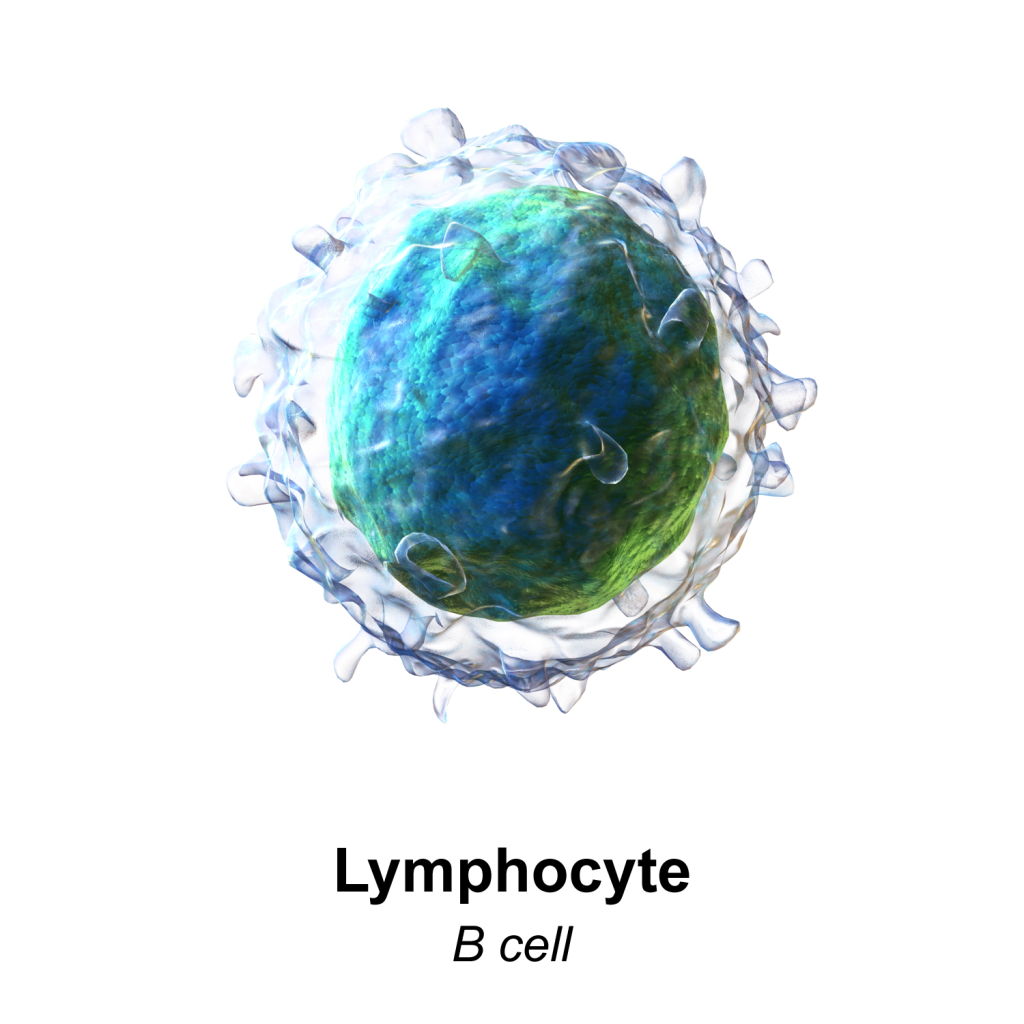
B-lymphocytes, also known as B-cells, are a type of white blood cell that is responsible for producing antibodies and playing a major role in the adaptive immune system. B-cells can recognize and respond to antigens and pathogens, binding to them to signal other components of the immune system to respond. B-cells also play an important role in memory, allowing the body to remember and quickly respond to previously encountered antigens. B-cells can differentiate into several types of cells, including plasma cells, memory B cells, and regulatory B cells.
Antibodies destroy pathogens in three different ways.
- Neutralization: Antibodies attach to the pathogen and prevent it from entering and infecting cells.
- Agglutination: Antibodies attach to the pathogen and cause it to clump together. This makes it easier for the immune system to recognize and destroy the pathogen.
- Opsonization: Antibodies attach to the pathogen and mark it for destruction by specialized cells, such as macrophages, that can engulf and destroy the pathogen.
limphosytes, lymfosites
